Education may not consistently be good at many things. But, it does seem to be great at both acronyms (CTE, PBL, EDI, ELL, SPED, PLC and so on) and catch phrases (21st century learning, personalized learning, future ready). One of the more popular catchphrases as of late is College & Career Ready.

Indeed, the ‘Career’ part is a more recent addition. For years, we really just said (and lived) College Ready. I’m here to suggest it’s time to drop the College Ready and only use Career Ready. Don’t get me wrong. I do think almost everyone needs some sort of post-secondary training, especially in our new globalized economy. But I am suggesting that we use Career Ready only knowing that one’s career path should dictate their post-secondary education or training path. Additionally, it will allow us to focus on the requisite skills and planning required for young people to have lifelong employability in the 21st century.
* Many studies reveal that only half, or less, of all students that enter a four-year university or college degree program ever complete the program. According to the Chronicle of Higher Education, the total number of undergraduate-level completions per 100 full-time students, in all degree programs taking one year in length or more, is only 22.6%. You can look state by state, or college by college, and it doesn’t get much better. We have pushed more people to go, but too many of them end up not going anywhere unless you count large debt and no specific career path.
* Grey-Collar Employment Challenge. And for the ones that are graduating or completing degree programs, ⅓ or 33% of them are either unemployed or underemployed (Grey Collar jobs) well into their 30’s.

Lost in a Maze / Haze
The ‘Uber” Effect
Indeed, the ‘Career’ part is a more recent addition. For years, we really just said (and lived) College Ready. I’m here to suggest it’s time to drop the College Ready and only use Career Ready. Don’t get me wrong. I do think almost everyone needs some sort of post-secondary training, especially in our new globalized economy. But I am suggesting that we use Career Ready only knowing that one’s career path should dictate their post-secondary education or training path. Additionally, it will allow us to focus on the requisite skills and planning required for young people to have lifelong employability in the 21st century.
One of the early questions to me is what does college ready really mean? There have been some established standards relating to essentially basic skills, as well as critical thinking and communication. But they are incomplete at best. At worst, they are not even relevant to true success. After all, no matter what has been done in our secondary systems, college folks have always said that our students are generally not ready.

However, I’m not here to debate the definition of college ready. I am suggesting that there is far sinister method to the madness. It is my belief that our entire secondary system has been and continues to be focused on College Readiness for all - and not true Career Readiness.
Indeed, our courses, requirements, testing, counseling and student time are heavily devoted to college-related matters. And although we have now added the world ‘Career,’ as well as a renewed dedication to CTE, the college mindset is firmly embedded in our students, parents, teachers and communities.

* 7:2:1 - this is the ratio of jobs in our economy. For every 10 jobs, only one requires an advanced degree, only two require a bachelor’s level and degree and seven of them require a two-year or technical degree. Actually, this has been a steady trend line for several previous decades and it is anticipated to be going forward for many decades to come (go to Dr. Kevin Fleming’s Success In the New Economy to find out more). Essentially, why have we convinced everyone to go to college while ignoring the realities of work and pathways to get there.
One might be thinking at this point, what’s the bad thing? Everyone wants to college. Isn’t that a good thing? It sounds good, but has actually a produced a series of challenges that continue to be hard to overcome. First, while we have devised the college or university for all mentality, we forgot to check what is actually taking place in the workplace, the labor market and the economy. Here are some data points:
* Many studies reveal that only half, or less, of all students that enter a four-year university or college degree program ever complete the program. According to the Chronicle of Higher Education, the total number of undergraduate-level completions per 100 full-time students, in all degree programs taking one year in length or more, is only 22.6%. You can look state by state, or college by college, and it doesn’t get much better. We have pushed more people to go, but too many of them end up not going anywhere unless you count large debt and no specific career path.
* Grey-Collar Employment Challenge. And for the ones that are graduating or completing degree programs, ⅓ or 33% of them are either unemployed or underemployed (Grey Collar jobs) well into their 30’s.
Time and Money are Time and Money
Our completion rates are abysmal. Our average length of time to get a degree is abysmal as well. Then add in the financial crisis of students loan debt, and we have one messed up system not helping our young people find career success or happiness at any acceptable rate.
Lost in a Maze / Haze
Too many of our high school graduates are enrolling in college with no set career plan or understanding of their path. They often enroll at community colleges to take their general education classes. Sadly, the often use up their financial and burnout long before they complete any sort of degree or certificate.
The ‘Uber” Effect
Experts predict 40% or more of that work will be ‘freelancing.’ (See Forbes’ article The Rise of The Freelance Economy). How are our classes, programs, curriculum, instruction and career preparation addressing this phenomenon?

So, let’s be honest. Our high school counselors are college counselors and not career counselors. This is not their fault. They are agents of system that has dictated that college is our focus.
The average high school student is bombarded constantly with information about college including, but not limited to applications, scholarships, testing, financial aid, housing and more. On the other side, we have large #’s of high schoolers still going through our system with very little career planning or preparation. The majority are taking any CTE courses or classes connected to careers. Most do not spend any time in their core or elective classes researching or planning careers. Indeed, most attend a Career Fair or two and basically throw a proverbial dart of their post-secondary training and career possibilities.

Dr. Kevin Fleming and his associates have offered a variety of solutions. One is to examine how we guide our students in choosing a college. He argues that we have traditionally seen students, with support from their parents and educators, first choose a college, then a major and then a career. Fleming suggests, and I completely agree, that we have it backwards and that it should be flipped. Watch this short video that explains that and more related to Flipping the College-Decision-Making Paradigm Video.
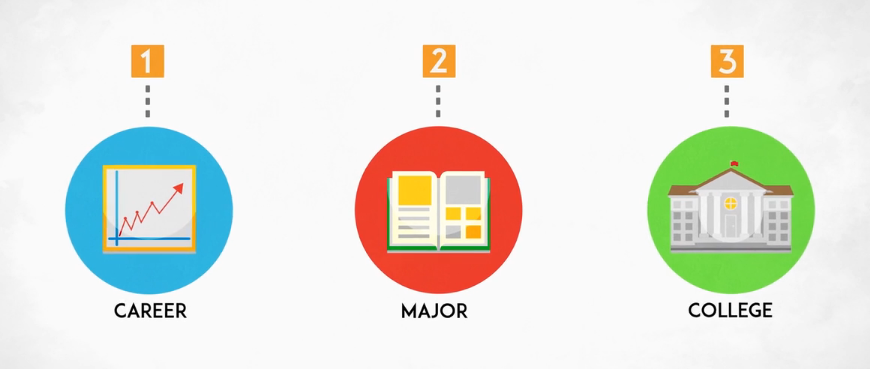
As Fleming and others will point out, we have created a culture of college for all students. We have convinced them to go to college, but have not created understanding of why. Our classrooms, schools, websites and literature K-12 are full of college pennants, information and facts. But we include very little, if any, about careers and career skills.
So, what should we do in addition to dropping College Ready and going with just Career Ready? Here are some ideas:
Change the conversation from where do you want to go to school to what do you want to do in your career......
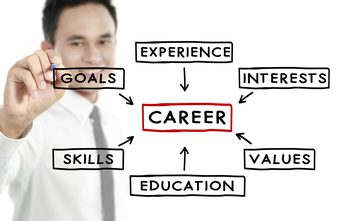
Build Career Advising into our counselors’ pedagogy and priorities. We need to start with career before we go to college.

Build career-related curriculum into our core courses (see my previous work of Integrating CTE Into the Core Curriculum. For example, since high school students take four years of English, could not part of their English courses focuses on career exploration and preparation. After all, what could be more important to read about, write about, research, and connect to than one’s career path? See my Odysseyware blog post "Integrating CTE Into The General Curriculum" on this. Also, What if we had math, science, and social science incorporate career exploration and CTE work into their subject matter? Why not show how professionals use these content areas and skills?

What if high schools had a CTE requirement each year? No offense to our other requirements, but what is going to prepare students more for their collective and diverse futures? If we had a general CTE preparation course, 9th and 10th grades could be devoted to exploration and info gathering, while 11th and 12th grades could be for internships and other work-based experiences.

What if our courses focused on skills acquisition and mastery? Too many students don’t have the skills they need and many can’t articulate the ones they have. The future of work is less focused on degrees and credentials and more focused on skills that can be demonstrated. In addition to any technical or specific career pathway skills, the world of work is also asking for everything from soft skills to newer skills from the digital, global economy.
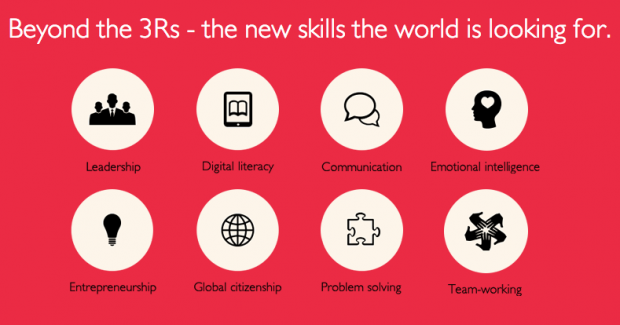 Some schools have gone to work-based graduation requirements such as internship for all juniors and seniors. But this can a variety of things including job shadowing, externships, internships, summer experiences, mentoring and more.
Some schools have gone to work-based graduation requirements such as internship for all juniors and seniors. But this can a variety of things including job shadowing, externships, internships, summer experiences, mentoring and more.
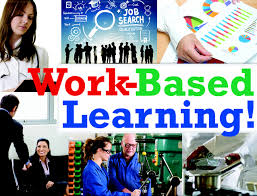
We need to well beyond an annual career fair or career interest inventory. Students need to spend concentrated amounts of time consistently throughout their high school career getting ready for their professional career.

Build in things like individual student portfolios, websites and presentations throughout curriculum and instructional programs. These will enhance one’s resume and ability to connect with employers for internships, externships, jobs and more.
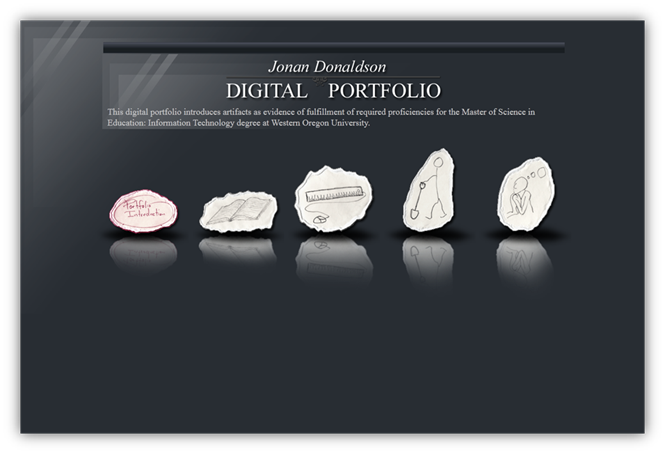
My guess is there is a lot more that we could do. However, it won’t happen until we change both the language and the focus. It really challenges us to reflect on what the primary purpose of education is? If it’s about getting one ready for life, then we have to acknowledge that this means career first and foremost. College, or post-secondary training of some kind, will undoubtedly be in the mix for most students. But we have to make career the goal, the foundation, the conversation and the priority.
(photos courtesy of Getty Images, Foter, Flickr)
ReplyDeleteHello admin,
I am seeing your blog, its really awesome and i am verry happy.
Oh yes, i have also a site related to you.
I am seeing that you are bachelor's degree. I have also a site related to you.
A bachelor or bachelor's degree is an academic qualification awarded by a college or university when an undergraduate course has been successfully completed.
it is possible to graduate earlier by taking an online degree and some traditional colleges also offer accelerated courses.
bachelor's degree
Regards,
Fahiam mahomed